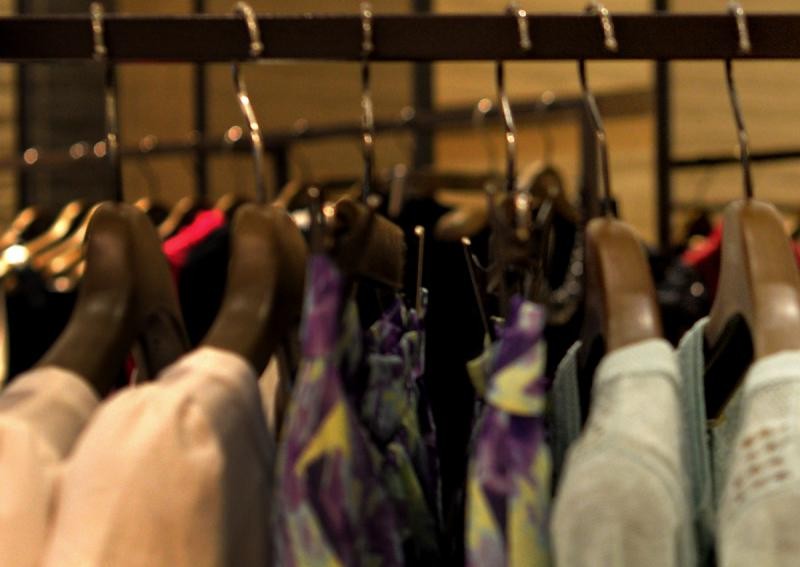3 ways to stop your flat from being flooded with unnecessary purchases

Believe it or not, I used to have own so much stuff that friends who came to my place said it looked like there was an entire family living in my bedroom. These days, people actually donate their used stuff to me.
Okay, I realise that's not exactly the best advertisement of living a minimalist life, but seriously, when you commit to owning only what you need, your expenses fall drastically.
Not saying you need to donate everything in your home to the Salvation Army and start sleeping on a mattress in the middle of an empty room. But downsizing can instantly transform your spending habits. Here are some tips for living with less.
Determine the maximum amount of books and clothes you can keep
The trouble with Singaporeans who are drowning in their belongings is the fact that they have no limits.
Space is limited, and we of all people on this overcrowded island should know that. Yet we never think about just how much is too much when it comes to amassing belongings. Instead, we buy first and then think about where we can store our crap later.
The first few years after you move into your own place, you don't really notice this because, let's face it, most Singaporeans leave a ton of their belongings behind at their parents' place. You're no longer haunted by the ridiculous clothes you thought were so cool in secondary school.
But as the years wear on, you slowly get suffocated under a pile of your own belongings. Kind of like how our public transport system is now sagging under the weight of the population.
To lower your consumption and declutter, determine the maximum amount of belongings you can keep in your home, rather than expanding your storage space to match what you buy.
If you have one closet, promise yourself you'll start throwing things out when you're no longer able to comfortably store everything inside, rather than start stuffing things in when you begin to run out of space.
The same goes for bookshelves, games cabinets, toy cabinets, whatever. Bibliophiles often have a hard time parting with their books, but let's face it, you haven't reread most of those books in 10 years and probably never well.
When you realise that the amount of stuff you can own is finite, you start being a lot more discerning about what you should actually be buying. That can make all the difference.
Whenever you want to buy something new, determine its place in your household first
I now live in a pretty small space, and whenever I feel like buying something, I only have to think about where exactly I can store it before finally deciding that we just don't have room for it.
I see that as a blessing rather than a curse as it has prevented me from making mistakes such as purchasing Disney-themed whiskey glasses (the drying rack is already at maximum capacity) and the Trevi Fountain Lego set (not enough shelf space).
Before you buy anything new, you have to make sure there's space for it in your home first. Think about the exact spot where you intend to store or display your new purchase, and whether you'll need to get rid of anything to make way for it. Visualise that new purchase in your home, and make sure it fits.
When you do the above, you raise the criteria for a new purchase, and are less likely to buy stuff you don't need on impulse.
Create a plan for the stuff you wish to get rid of
Not getting suffocated by your belongings occasionally means you need to get rid of stuff you no longer use.
Sure, everyone has vague aspirations to "give things to charity", but without a concrete plan to dispose of your stuff, nothing will materialise.
Create a detailed plan for the stuff you want to get rid of-putting it down on paper-and you're more likely to follow through. For instance, once when I was cleaning out my wardrobe, I created a pile of clothes to donate to charity, another pile to sell online and a third to pass on to friends, labelling each one clearly.
If you're having trouble deciding whether to keep something or get rid of it, seriously: when in doubt, throw it out. The fact that you're even hesitating probably means that the item in question is hideous and you've not used it in 10 years, but you spent a ton of money on it and are now trying to convince yourself it wasn't a stupid purchase.
This article appeared first in MoneySmart.
MoneySmart.sg is Singapore’s leading personal finance portal, and aims to help people maximise their money with powerful tools and engaging content.